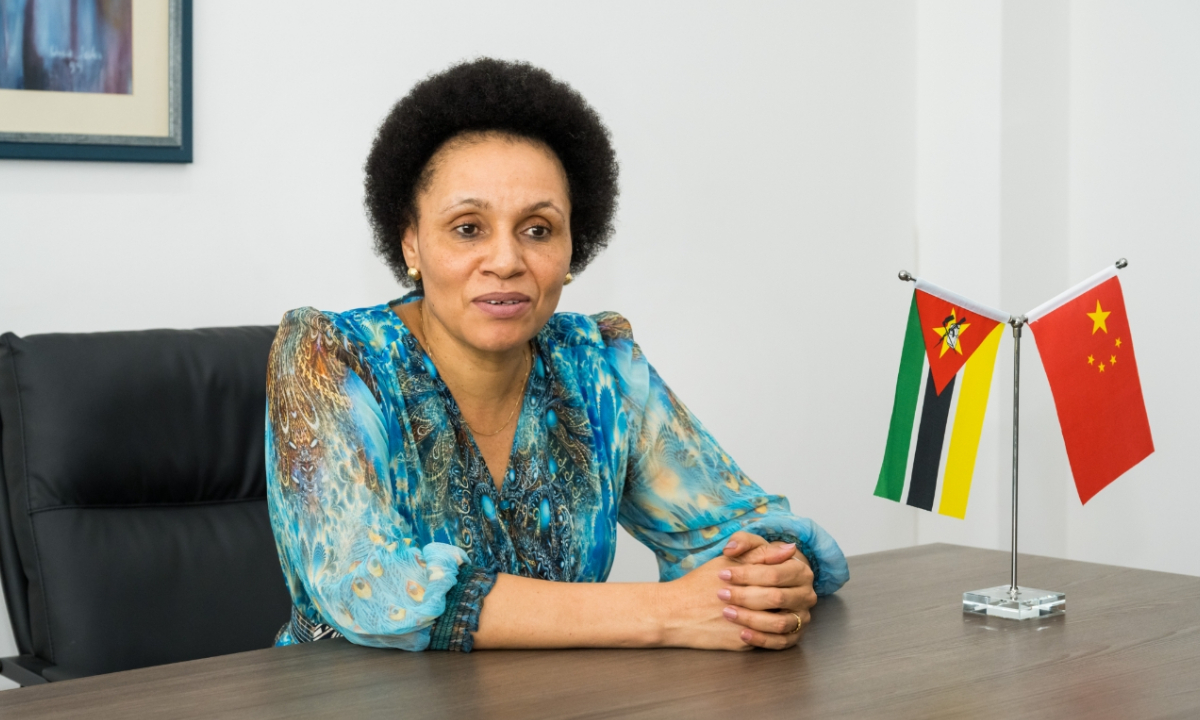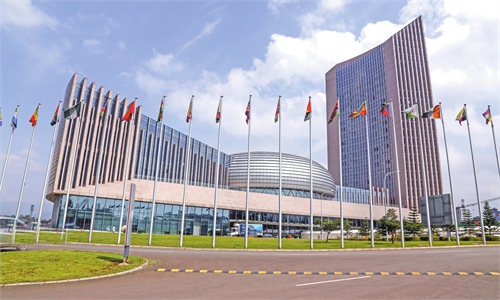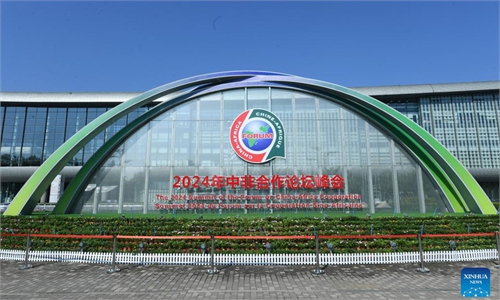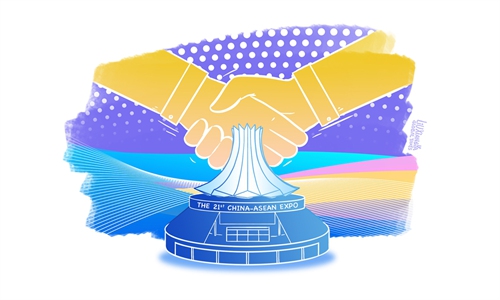Cooperation spans various key sectors from agriculture to green energy: envoy
China-Africa partnership enters new phase

Maria Gustava, Ambassador of Mozambique to China Photo: Chen Tao/GT
Editor's Note:
Within the framework of the Forum on China-Africa Cooperation (FOCAC), the bilateral ties between China and Mozambique have strengthened, resulting in a series of cooperative achievements that benefit Mozambique's economic and social development. Cooperation spans nearly all sectors, from agriculture and industry to energy and infrastructure. During the 2024 FOCAC summit, the Global Times (GT) reporter Yin Yeping interviewed Maria Gustava (Gustava), Ambassador of Mozambique to China, who shared insights of the cooperation between the two countries under the Belt and Road Initiative (BRI).

The file photo shows Maputo-Katembe bridge, in Maputo, Mozambique. The bridge was built by the China Road and Bridge Corporation, with Chinese standards and financing support. Photo: VCG
GT: How has your country's economic development benefited from cooperation with China, and what specific areas do you hope to deepen the ties in the future?
Gustava: The relationship between Mozambique and China has rapidly grown in the economic sector. We have seen significant investments and assistance from the Chinese government for infrastructure development. Among these achievements, a Chinese-built bridge in Maputo, Mozambique, has become a new landmark as one of the longest suspension bridges in Africa.
Additionally, we are involved in numerous energy projects, given Mozambique's rich energy resources, as well as the development of industrial parks. Chinese companies are keen to invest in energy development, including renewable sources like solar power. There is a lot happening in our cooperation that is interesting and exciting.
We are cooperating with each other in various areas. At present, we aim to strengthen our cooperation in agriculture and infrastructure. Additionally, we will address the issue of industrialization, as Mozambique needs to add value to its products. We are a major producer of agricultural products, and cooperation and investment with Chinese companies will help us achieve this.
Another crucial area of cooperation is the development of human resources. Developing a country requires focusing on human resource development. Even with abundant natural resources, without advancing human development, it is challenging to keep up with global advancements, especially with the rapid growth of innovation in artificial intelligence.
In my view, China-Africa cooperation is entering a new phase, with both sides opening a new page for future cooperation.
GT: How do you think China, with its advantages in the development of electric vehicles, can work together with Mozambique to help boost its green transformation?
Gustava: The green transition is costly, especially for developing countries in Africa, which often lack the necessary funds and technology. This is where China plays a crucial role by making the transition more affordable and accessible — not through donations, but through investment. This creates a win-win situation for both sides.
Mozambique is one of those countries with huge potential for various types of energy development — abundant sunshine ideal for solar power, numerous rivers suitable for dam construction, and significant reserves of liquefied natural gas. We can make a good use of them.
GT: What is your assessment of achievements under the BRI, and how do you foresee future cooperation between Mozambique and China under the joint initiative?
Gustava: We are benefiting from various initiatives, including the BRI proposed by China. To export our products to the world, we need more and better infrastructure projects, such as roads and bridges. China supports African countries in developing these infrastructures under the BRI.
China does not impose its initiatives on any country. Instead, we conduct our own studies and determine whether these initiatives align with our interests. This is beneficial for our countries.
GT: How do you respond to some Western media's rhetoric, claiming the BRI leading to the so-called "debt trap" and expanding Chinese influence in Africa?
Gustava: It's important to note that Africa's debt is not all coming from China. In fact, a significant portion comes from multilateral institutions like the World Bank and the IMF - They have the biggest numbers.
We view our relationship with China as a positive impetus for the development of our country. As you can see, roads have been paved, buildings constructed, and airports built. The changes brought by China to the region are visible.
We need to build strong partnerships based on fairness and cooperation, rather than facing criticism for our joint actions.
GT: Considering global challenges and protectionist trends, how do you believe China and Africa should strengthen cooperation to navigate the global challenges while moving forward?
Gustava: We understand that we cannot live in isolation. We are part of a globalized world that is deeply interconnected. It is crucial for us to build our strength within the Global South, uniting our efforts to improve our collective situation. We should unite our strength to work together to make things better, because we have a bigger voice together.
We should leverage our strength in international organizations and enhance trade between our nations. Africa, with its population of over 1.4 billion people, and China, with a similarly large population, have significant potential for closer collaboration. We should not be distracted by protectionist policies from others.



